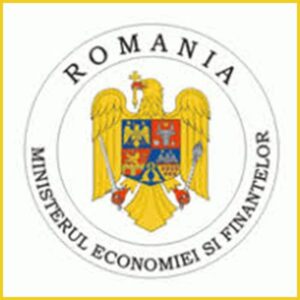-
Labor taxes
– moving from a 10% flat tax on labor income to a two-rate tax of 15% and 25%, with the latter applying to the highest incomes. To reduce the tax burden on labor for most taxpayers, the Fund recommends significantly reducing or eliminating health care premiums.
-
Taxation of wealth and asset income
 The tax on dividends paid to individuals should be increased from 8% to 10%; land and property taxes should be merged into one tax and exemptions reduced, while vulnerable individuals receive tax relief in other forms; the tax incentive for research and development should be restructured as a refundable tax credit; the turnover threshold for the micro-enterprise regime should be significantly reduced from the current €500,000, preferably by aligning it with the threshold for VAT registration (€88,500). The taxation of corporate profits can be improved by eliminating the tax deduction for corporate sponsorship and replacing the tax exemption for reinvested profits with a tax deduction of up to 50% for eligible investments, capped at 10% of the corporate tax liability.
The tax on dividends paid to individuals should be increased from 8% to 10%; land and property taxes should be merged into one tax and exemptions reduced, while vulnerable individuals receive tax relief in other forms; the tax incentive for research and development should be restructured as a refundable tax credit; the turnover threshold for the micro-enterprise regime should be significantly reduced from the current €500,000, preferably by aligning it with the threshold for VAT registration (€88,500). The taxation of corporate profits can be improved by eliminating the tax deduction for corporate sponsorship and replacing the tax exemption for reinvested profits with a tax deduction of up to 50% for eligible investments, capped at 10% of the corporate tax liability.
3 Consumption taxes
– Reduced VAT rates should be increased to the standard rate, with the possible exception of basic foodstuffs (the increase could be staggered over time to soften the impact on consumer prices); the standard rate should rise from 19% to at least 20% by 2025 and then to 21%, close to the EU27 average of 22%; excise duties should be adjusted for inflation; the excise rate for still and sparkling wines should be unified at around 60 lei/hl
 Romania has the third lowest tax-to-GDP ratio in the European Union, with ample opportunities for fiscal policy to complement the tax administration’s ongoing digital transformation to generate additional revenue. The IMF technical assistance, requested by the finance minister, proposes a package of fiscal reforms aimed at raising revenues while improving incentives for work, remaining attractive for capital investment and closing loopholes for tax planning abuses. Instead of making the minimal fiscal adjustments needed to save the EU funding package, the deficit burden can be seen as an opportunity for Romania to make important structural improvements in the fiscal sphere, particularly by shifting the tax burden from mandatory social security contributions to more consumption and income taxes,” the report said.
Romania has the third lowest tax-to-GDP ratio in the European Union, with ample opportunities for fiscal policy to complement the tax administration’s ongoing digital transformation to generate additional revenue. The IMF technical assistance, requested by the finance minister, proposes a package of fiscal reforms aimed at raising revenues while improving incentives for work, remaining attractive for capital investment and closing loopholes for tax planning abuses. Instead of making the minimal fiscal adjustments needed to save the EU funding package, the deficit burden can be seen as an opportunity for Romania to make important structural improvements in the fiscal sphere, particularly by shifting the tax burden from mandatory social security contributions to more consumption and income taxes,” the report said.
Regulation 156/2024 has already increased the dividend tax from 8% to 10% from the beginning of 2025 and lowered the ceiling for taxing micro-enterprises by 3% of profits to 250,000 euros.
